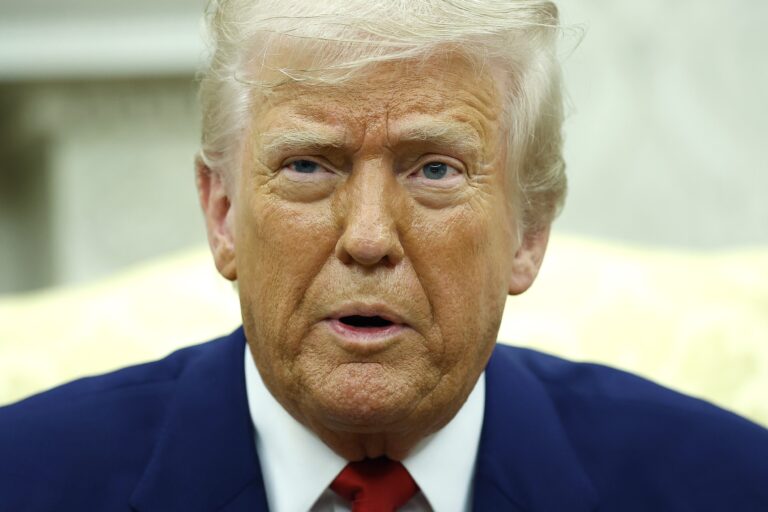Donald Trump’s “law and order” brand has always been a political charade. Now, as his reckless tariffs rattle markets and the stock market tumbles, the real cost of his policies is coming into view. While cable news tracks every dip in the Dow and Americans watch their 401(k)s shrink, the most dangerous consequences of Trump’s economic sabotage are yet to come: rising unemployment, decimated public services, and a predictable surge in crime. History makes it clear—when economies collapse, public safety erodes and communities suffer.
Trump’s across-the-board tariffs will function like a national sales tax, driving up the cost of everyday necessities, including the food, medicine, clothing, and other essentials that families rely on just to get by. These tariffs hit the products that fill grocery carts and medicine cabinets across America.
While the wealthy may barely notice the change, low- and middle-income families will feel the pinch at every turn. For working parents already stretched thin, these rising costs will force impossible choices—between filling up the tank or paying for prescriptions, between putting food on the table or keeping the lights on. It’s a policy that punishes the very people Trump claims to champion.
At the same time, Trump’s administration has already instituted mass layoffs of public-sector employees, including tens of thousands of layoffs at federal agencies, and deep cuts for everything from life-saving scientific research to public libraries. Those cuts don’t stay in Washington—they ripple through communities, forcing state and local governments to raise taxes or issue municipal bonds just to fund essential services.
And when schools, hospitals, shelters, libraries, and public safety agencies lose funding, it doesn’t just make life harder. It makes communities less safe.
Research consistently shows that economic hardship fuels crime because poverty drives desperation. We saw this dynamic play out most recently during Trump’s final year in office. In 2020, amid a deadly pandemic, massive job losses, and widespread social unrest, the U.S. experienced a 30 percent spike in homicides—the largest single-year increase in more than a century.

More
Kevin Dietsch/Getty Images
In contrast, 2024 marked one of the sharpest declines in violent and nonviolent crime in recent history. The difference? Investment in people, not punishment. Voters overwhelmingly support expanding access to housing, mental health care, jobs, and education—not rounding up immigrants, slashing Medicaid, and stoking division.
Trump’s second-term agenda is a return to the failed policies of the past. It’s more tax giveaways for billionaires and Elon Musk’s vanity projects, while working Americans face higher prices and disappearing safety nets. When people lose their jobs and homes, when they can’t afford food or child care, and when their local governments are forced to cut vital services, desperation rises. Social cohesion breaks down. And public safety suffers.
Prosecutors and law enforcement officials are sounding the alarm because they understand what truly keeps communities safe. They see firsthand how decreased local funding, shuttered mental health clinics, and rising poverty translate into rising caseloads and strained public safety systems. As Norfolk Commonwealth’s Attorney Ramin Fatehi put it, Trump’s agenda is making it “dramatically harder” for prosecutors to do their jobs, not easier.
Trump’s policies don’t fight crime. They fuel it. By crashing the economy, gutting social services, and weaponizing the government, the administration is setting the stage for a new era of chaos—one in which public safety decreases, trust in democracy declines, and working families are left more vulnerable than ever.
A Trump crime wave is coming. It will be lived and felt in every corner of America, from empty grocery shelves to under-funded police departments, from rising evictions to shuttered mental health clinics. And once again, it will be working families who suffer most.
Amy Fettig is the acting Co-Executive Director of Fair and Just Prosecution and a national expert on criminal justice reform.
The views expressed in this article are the writer’s own.


